Wilderness Safaris have been working for almost four decades to protect millions of hectares across seven countries in Africa. They create unforgettable journeys for guests, who enjoy a front row seat in Africa’s awe-inspiring sights as well as encounters with the most majestic animals in the continent. Wilderness Safaris had its origins in Botswana in 1983. It all started with the idea that their business and its success would be to ensure the conservation of wildlife areas.
With time and not without a huge effort, they started achieving new goals and expanding to new areas, building strong bonds with the local communities like the Zulu in Maputaland and Torra Community in north-west Namibia, where the joint-venture resulted in a dramatic increase in wildlife numbers. The commitment to protect the environment is at the heart of every project developed by Wilderness Safaris, so, while they offer visitors the luxuries of some of the most renowned safari experiences in the world, they also offer them the chance to help and contribute to the preservation of wildlife.
Over the years Wilderness Safaris managed to reverse the extinction of white and black rhino in Botswana, the desert black rhino in Namibia and lately they are taking new action in Rwanda to help protect threatened species. Other efforts have been made on transforming the eco-footprint, eradicating the wasteful use of plastic, and introducing renewable energy systems and reverse osmosis systems for water purification. In Bisate, Rwanda, each guest contributes to the objective of sustainable tourism by helping with the reforestation of the area. In return, they enjoy visits to the Volcanoes Park with incredible sightings of gorillas and golden monkeys.
Over the years Wilderness Safaris managed to reverse the extinction of white and black rhino in Botswana…
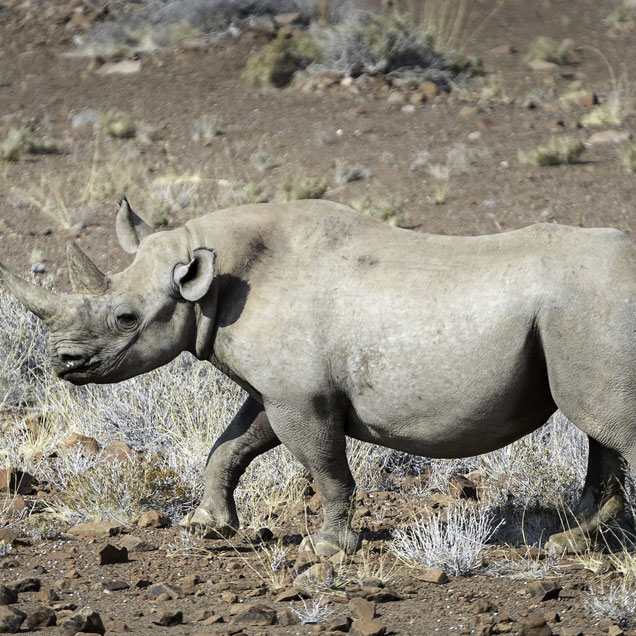
There are other actions taken in the camps which contribute to sustainable ways of life: seasonal menus based on local fresh produce, using excess fruit and vegetables to make preserves and snacks, making compost from food waste to sustain the saplings later planted and using reusable bottles which can be refilled with filtered water by a reversed osmosis system, drastically reducing single-use plastic in the camps. Wilderness safaris work towards 100 percent solar-run campgrounds, thus avoiding the use of fossil energy and becoming part of the cause against climate change.
To reinforce the commitment with a sustainable protection of the areas, the camps and all accommodations are built to have as little impact as possible in the surroundings and not affect the wildlife. These proceedings take place not only during the building process but on their day-to-day operations, blending in with the surrounding landscape and giving the option to move the camps if needed, leaving no sign of previous presence. Involving local communities is an essential part to reach the goal of preservation. With that in mind, one of the key projects Wilderness Safaris are most proud of is Children in the Wilderness, a non-profit organisation aiming to facilitate leadership and education programs for children in Africa, teaching about sustainable conservation, inspiring them to care for the land they will inherit and become its protectors.
This programme is having a huge impact in the communities and it is constantly receiving a great amount of emotional support from the participants and from those guests able to visit them in the local primary schools. This initiative is complemented by adult empowerment projects, which have helped to create community businesses, allowing adults to pay for school fees for their children. One successful project has been basket weaving using recycled materials, run by a group of women in Tsholotsho (Zimbabwe).
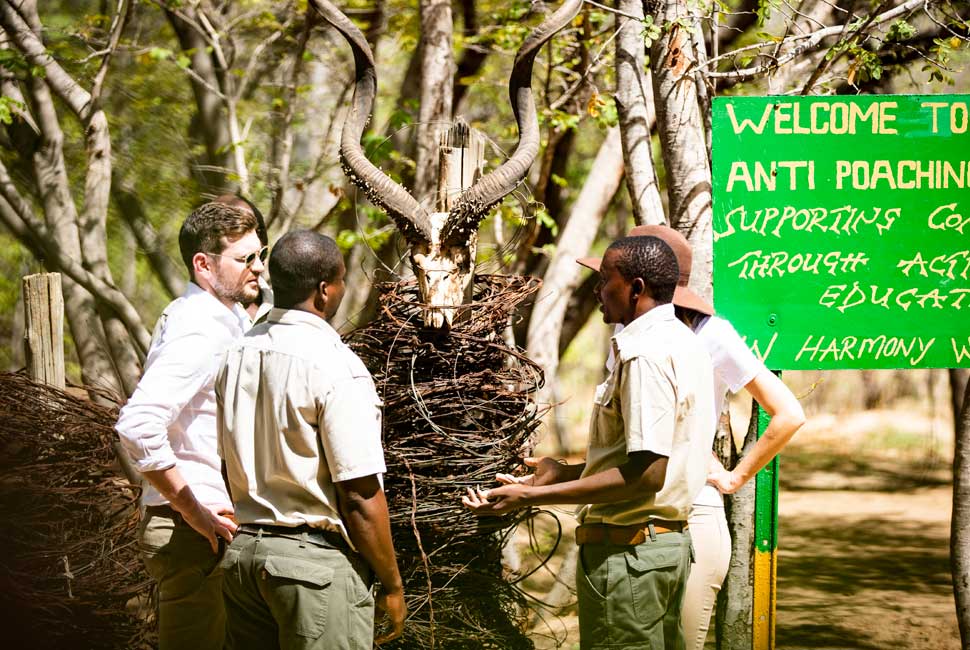
Another booming business is brick-making from recycled glass by the Nganyana men (also in Zimbabwe) mostly from bottles, which then are crushed into fine powder and remade into bricks for selling in the community to use in construction.
We must pay special attention to some key reforestation projects in Botswana and Rwanda. At the moment there are two new projects in the Linyanti Wildlife Reserve and the Gishwati-Mukura National Park, along with the one taking place in Bisate. Wilderness Safaris have constructed tree nurseries near the camps using seeds of trees within the reserves to ensure the longevity of both the flora and fauna in the area.
For those guests looking to immerse themselves in nature, these nurseries can be visited and visitors can get their hands dirty planting a tree, hence playing a small part in return for the unbelievable experience. Between the Gishwati Forest and Bisate, over 50,000 indigenous trees have been planted from saplings grown in the nurseries, among them many endemic species such as jackalberry, knobthorn, African mangosteen, mahogany, buffalo thorn, marula, baobab, birdplum and Kalahari apple leaf. The Covid pandemic and consequent travel restrictions had an enormous impact on Wilderness Safaris, putting at risk the livelihoods of many of the communities dependant on the activities at every camp where they have a presence.
The Heroes campaigned has helped many communities to survive during Covid…
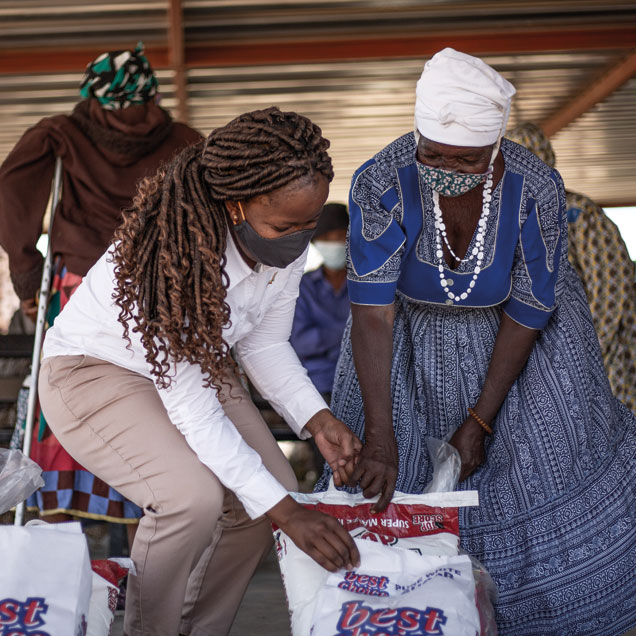
Therefore, Wilderness Safaris launched the Conservation Heroes Campaign, aimed at protecting local communities and wildlife during these difficult times and raising important funds for the distribution of over 10,000 food parcels in six countries, affecting 47,000 people from over 35 communities, along with conservation and anti-poaching projects. Wilderness Safaris are now a global enterprise dedicated to the promotion and preservation of African wildlife, taking astounding care of the communities it operates with, and building lifelong relations with the people, the wilderness and our great planet Earth.





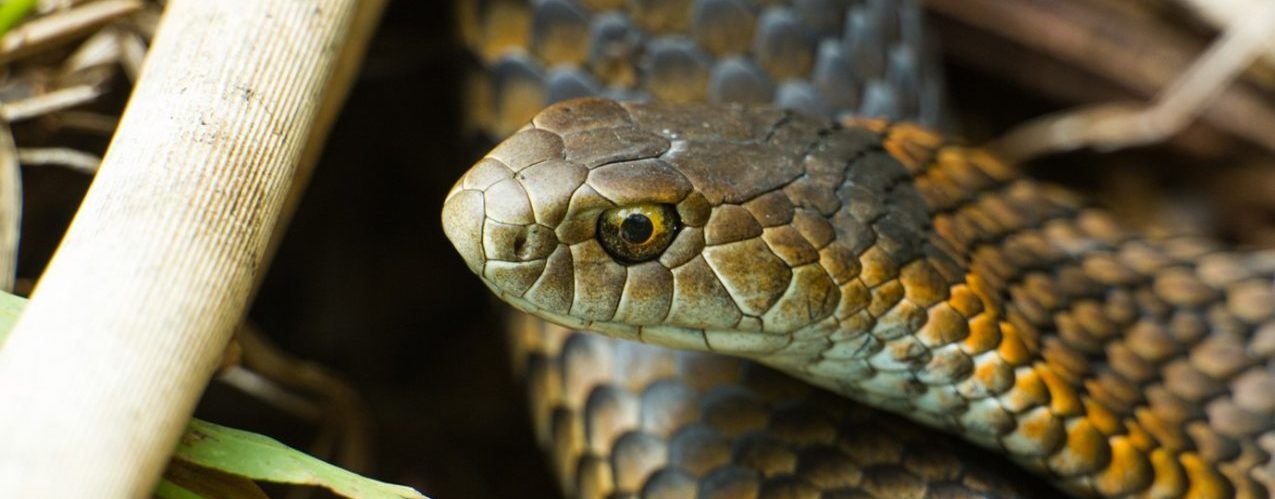

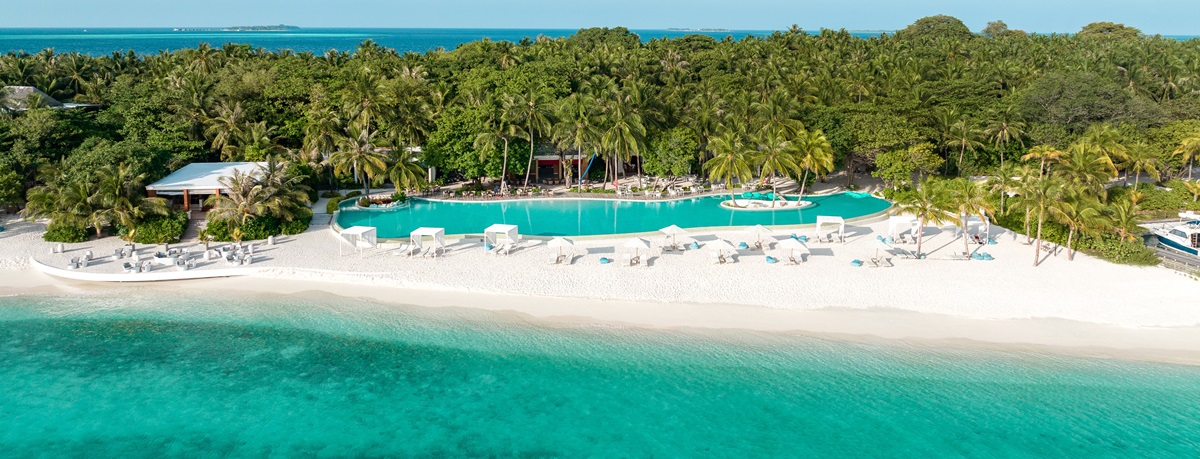


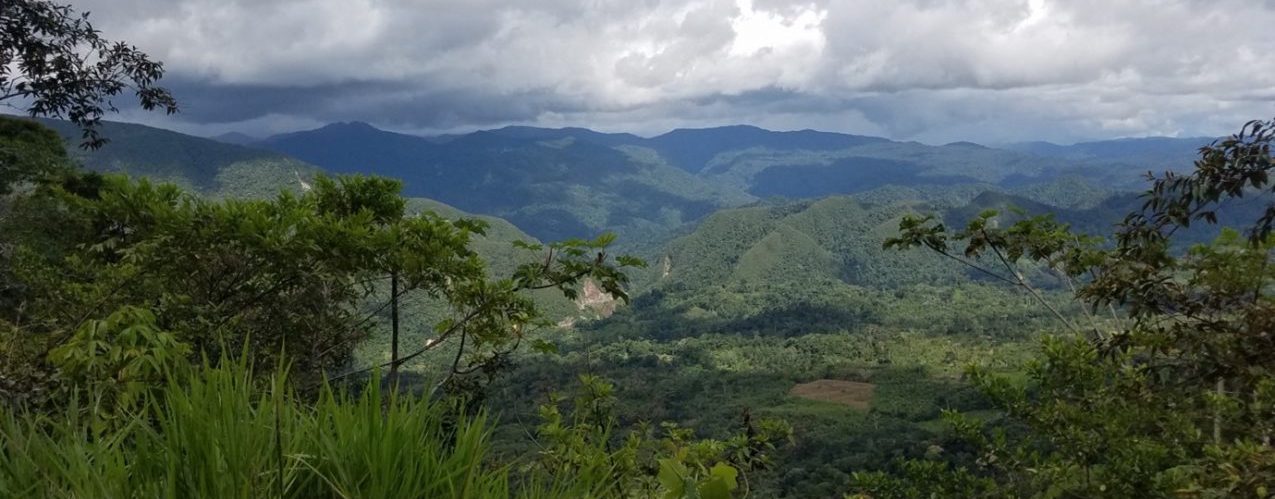



Show Comments +